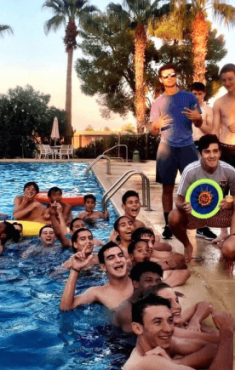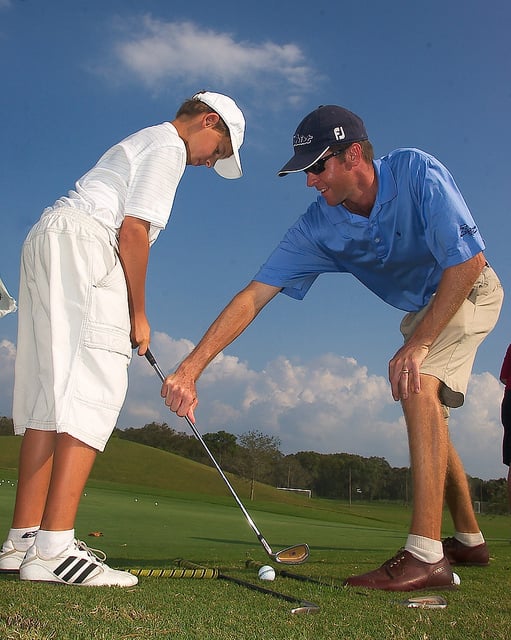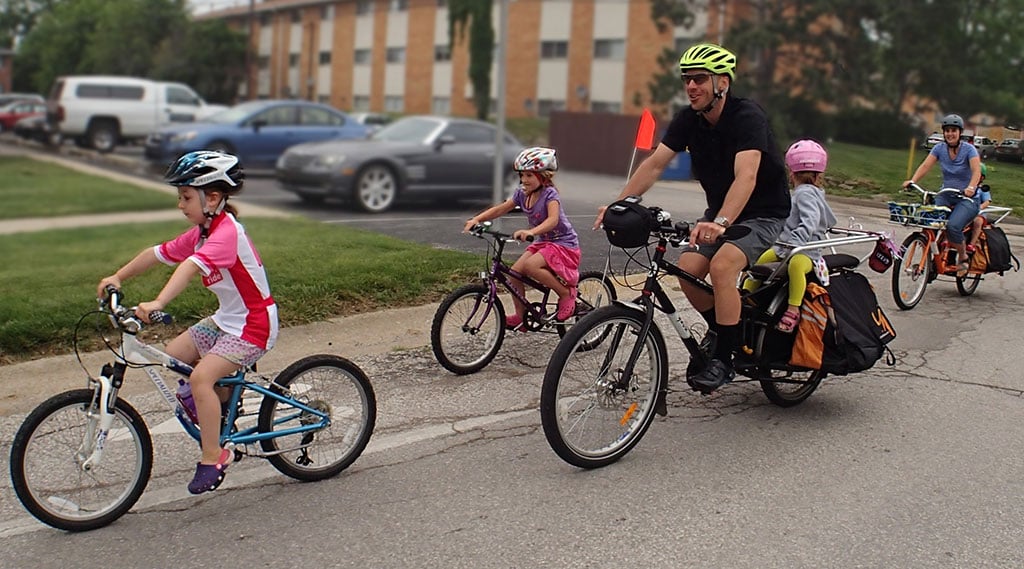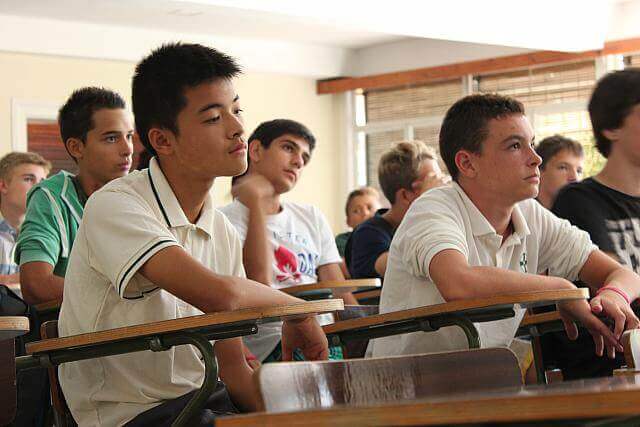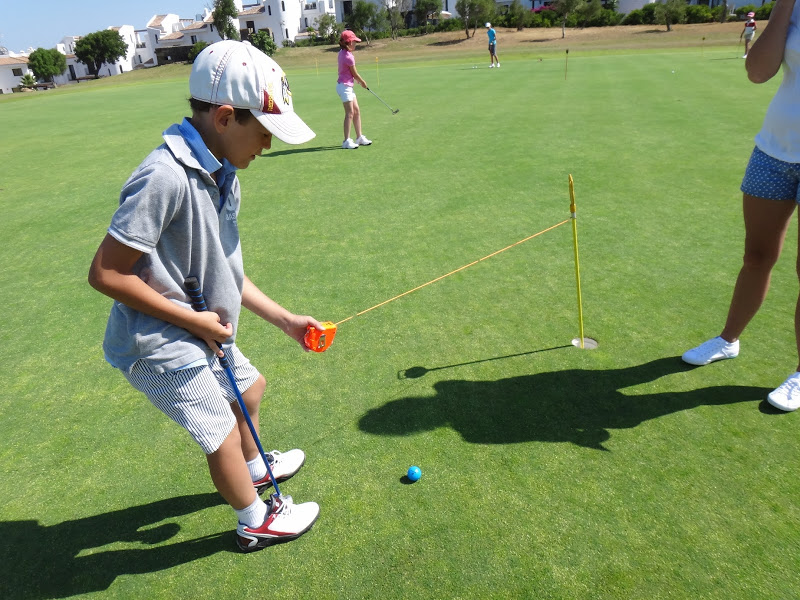It’s a big decision to send your kid abroad to a summer camp, but it’s one of the best decisions you can make for your child. Your child will learn how to be independent, responsible, and resilient. Not to mention, they’ll make lifelong friends and memories while having a blast. And, summer soccer camps are the perfect way to encourage your child to live a healthy life while, at the same time, cutting down their screen time.
We know to send your kid abroad can be scary. You might worry about their safety and health or about whether or not they’ll make friends and have a good time. And, you probably have a long list of questions: Can my child travel on an airplane alone? How can I communicate with them while abroad? Do they need a student visa?
We’ve created this guide to help prepare you to send your kid abroad to participate in a summer camp. We’ll address your biggest concerns, and also outline the benefits your child will experience from traveling abroad. Then, we’ll discuss all the little things you need to know to prepare your child for an experience of a lifetime.
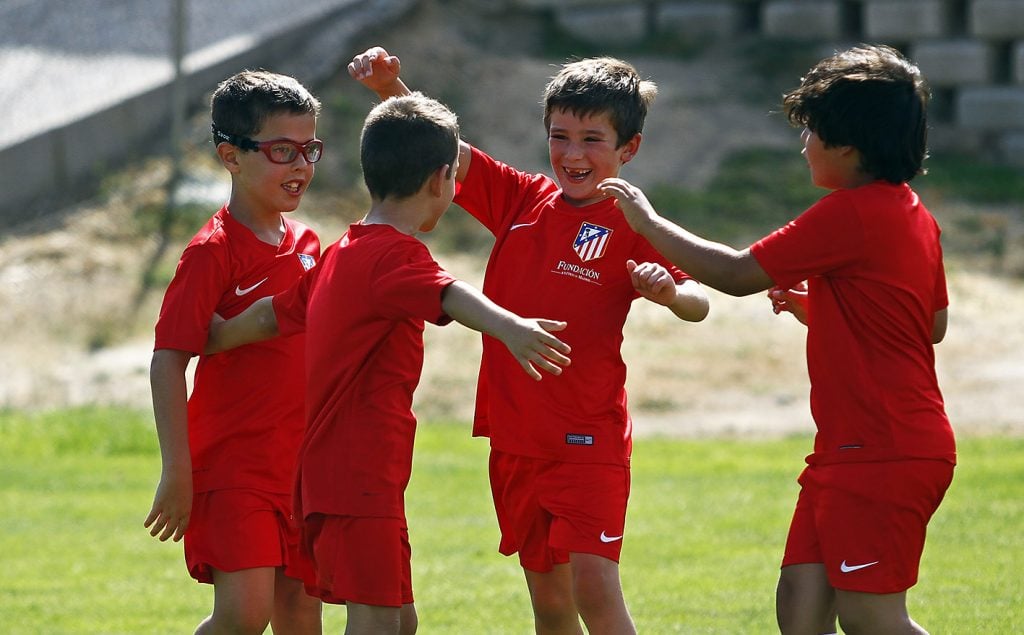
What you’ll learn:
Part 1: What are you afraid of?
Part 3: What you need to know if you send your kid abroad
- Your child might need a passport
- Your child might need a visa
- You might need to purchase an unaccompanied minor service
- You might need to purchase a transfer service
- You should consider purchasing insurance
- Apps to communicate with your child with abroad
- How to send money to your child
- Discussing safety with your child
- Discussing adapting to change
- Necessary travel items and recommendations
- Booking with an agency
What are you afraid of?
Are they ready?
We know you have many questions and concerns about sending your kid abroad alone. Your first question might be, “Are they ready? Are they mature enough to handle being away from home?” Honestly, there is no easy answer to this question.
Noone knows your child better than you do. You probably know them better than they know themselves. Our best advice would be to talk to your child and trust your gut instinct. What does your gut tell you?
If you’re still unsure, think about how often they spend time at their friends’ houses. Do they stay out often? If so, they could be ready to spend one or two weeks away from home. After all, they’ll be with a lot of other children their age. So, even if you send your kid abroad, they’ll never really be alone.
And, on top of that, camp monitors are all our summer soccer camps are perceptive to students’ feelings. If they notice a camper is down or homesick, or if you as a parent report your own concerns, they’ll pay extra attention to your child and do everything they can to make them feel welcome.
Dr. Sheryl Ziegler, Doctor of Psychology, recently wrote a great article which contains some strategies for preparing for sleep-away summer camp to help both you and your child deal with stress. Check it out by clicking here.
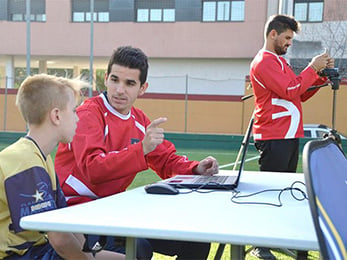
Will they be safe/properly supervised?
It’s also normal to be concerned about your child’s safety and health if you send your kid abroad. You might be worrying about your child getting sick or injured or getting into trouble while abroad. However, in most cases, there isn’t much to worry about.
Most study abroad programs have specific procedures for handling sickness or injury, and you can always purchase travel or medical insurance to make sure you’re financially covered in case of emergency. Additionally, most study abroad services guarantee 24-hour supervision for students under 18 years old.
All of our international summer soccer camps have medical centers either onsite or close by to treat injuries and illness as soon as possible. And, students at our summer camps abroad are always under 24 hour supervision to look after their health and their safety. If your child gets sick, injured, or in trouble, the camp director will contact you immediately.
Will they get along with the other kids?
It might be socially challenging for your child to study with other kids they don’t know, and you might be concerned with how your child will get along with the other kids at camp if you send your kid abroad. Fortunately, most summer study abroad programs are aware of this and do their best to help children integrate and make friends.
At our summer soccer camps, monitors often organize activities during the afternoon and evening hours to help the kids socialize and make friends. Not to mention, all the kids share a love for soccer and practice together on the pitch. Usually, the kids have no problem connecting with other campers.
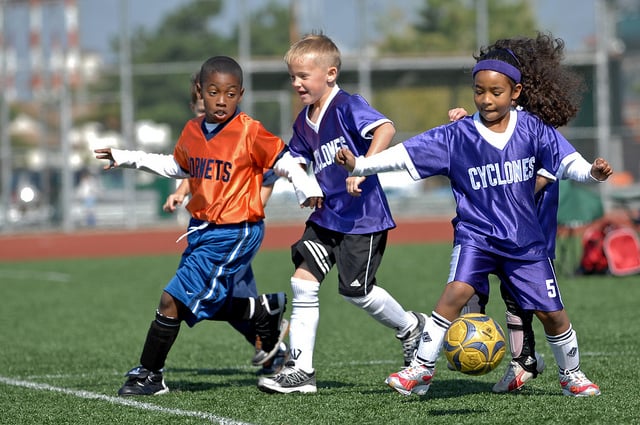
Is it worth the money?
To send your kid abroad is certainly a big investment. A residential summer camp abroad can cost anywhere from hundreds to thousands of dollars, and you’ll have to take flight cost into account as well.
The best advice we can give you to determine if the camp is worth your money is to define your goals and objectives before you send your kid abroad. Do you want to give your child an international experience? Do you want to expose them to a new language? Improve their sports skills? Are you sending them abroad for pure entertainment?
Once you know your objective, you can choose a camp that you’re sure will meet your objectives without breaking your budget. That way, you know what the main outcome will be, and you can decide if you’re willing to pay for it. Don’t forget, children experience countless benefits from attending summer camps abroad. Check them out in the next section.

| Your fears | Their reality |
| They’re not ready to be away from home, and they’ll have a miserable time. | Camp monitors make sure kids are too busy having fun to miss home. |
| They’ll get injured, sick, or into trouble while at camp. | You can purchase medical insurance, medical centers are close by and students are under 24-hour supervision. |
| They won’t make friends while at camp, and they’ll be lonely. | Camp monitors organize activities during evening hours to ensure that children interact and make friends. |
| Sending my child to camp is a waste of money. | If you choose the right camp for your child, summer camp can be an incredibly enriching experience. Some might even say, priceless. |
Benefits for children
Exposure to international travel
One of the greatest benefits of sending your kid abroad to a summer camp is that you’re introducing them to the idea of traveling. Traveling, in general, provides a long list of benefits. According to a this excellent article from TripSavvy, these benefits include sharpening the mind, gaining new perspectives, trying new things, meeting new people, among others. Travel abroad even leads to actual measurable health benefits by increasing happiness and lowering the risk of heart disease.
Plus, if you send your kid abroad for summer camp, you’re also introducing them to the idea of studying abroad for a semester or two in high school or college. And, the benefits of studying abroad are even greater than simply traveling. Study abroad for an extended period of time gives your child the chance to really interact with new cultures and learn from them which, according to Colombia business school professor Adam Galinsky, is the key to unlocking creativity and “cognitive flexibility” (The Yale Tribune).
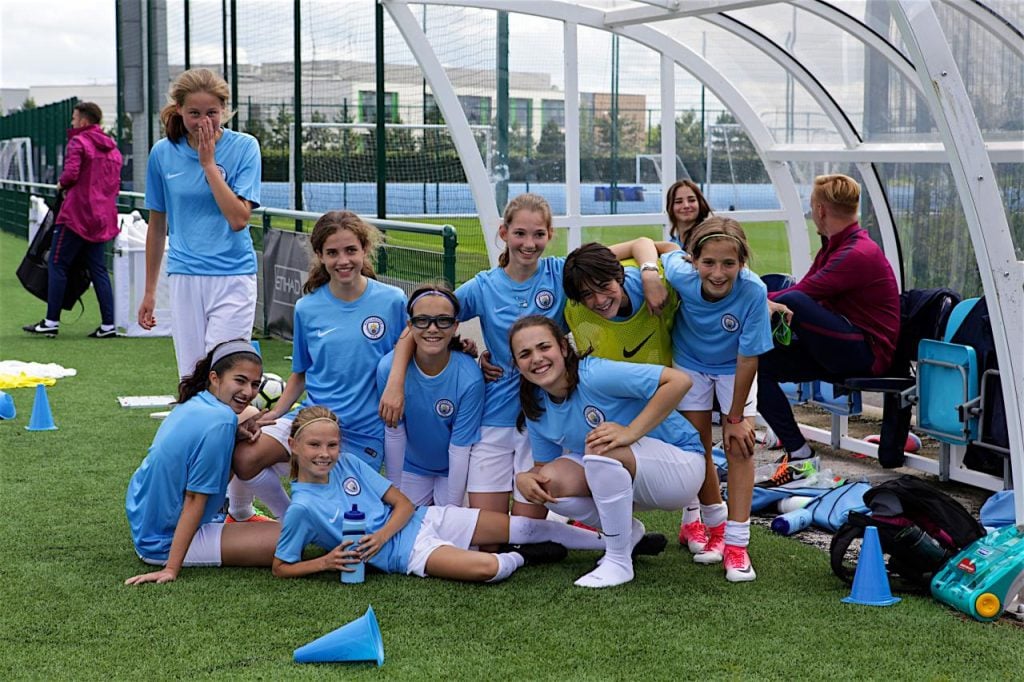
Exposure to other languages
By sending your child to an international summer camp abroad, you’re exposing them to many different languages and also showing them that learning languages can be fun.
Children from many different backgrounds attend these camps and take languages classes while they’re there to learn the native language of the country. Then, they use their new skills and, of course, a lot of body language and acting to communicate with their peers. Camp activities are even more fun when people are speaking with funny accents and acting out their feelings.
Learning a second language also leads to a vast number of benefits including improved creativity, improved divergent thinking, and better test scores. It turns out that bilinguals experience a constant mental workout as they sort through multiple languages to communicate making children smarter and less likely to suffer from Alzheimer’s disease once they grow old.
Improve their self-confidence and self-esteem
Children with high self-esteem are more likely to experience academic achievement, success, satisfaction in relationships, and overall happiness. If you send your kid abroad to a summer camp, you’ll really boost their self-esteem and self-confidence for a number of reasons. First, you’re showing your child that you care about their interests and passions. Believe it or not, your child really does care about what you think. By showing interest, you’re giving them a reason to keep practicing and making you proud of their success.
Self-esteem is directly related to the memory of success. By sending your child to a summer camp abroad, you’re giving your child something to be proud of. The idea might seem scary at first, but they’ll be with their peers and supervised at all times. Then, they’ll look back and be proud of what they accomplished despite their fears, raising their self-esteem and preparing them for future success.

Improve their work ethic
A strong work ethic is perhaps the most important trait shared by all successful people. Will Smith, world-famous actor and four-time Grammy-winner said, “I’ve never really viewed myself as particularly talented. Where I excel is ridiculous, sickening work ethic. You know, while the other guy’s sleeping, I’m working. While the other guy’s eating, I’m working.” At summer soccer camps abroad, especially high-performance camps, children are expected to work hard on the field to improve their skills which prepares them for success in life.
Check out this inspiring compilation video from fearlessmotivation.com of Will Smith expressing the importance of hard work.
Improve their health and fitness
Obesity causes cardiovascular diseases, diabetes, musculoskeletal disorders, and even some kinds of cancer. According to the National Institute of Child Health and Human Development, 17 percent of children aged 2 through 19 are considered overweight. Even worse, overweight children are likely to remain overweight as they enter adulthood (World Health Organization).
Children and youth aged 5–17 should accumulate at least 60 minutes of moderate- to vigorous-intensity physical activity daily. At summer soccer camps, children get the recommended dose of daily exercise and they learn healthy habits. Encouraging kids to practice sports by sending them to sports camps teaches them healthy habits and sets them up for a healthy and active life.
Did you know that children who exercise at an early age grow up to be smarter adults? You heard right – not only healthier, but also smarter! Check out this article from The Guardian.
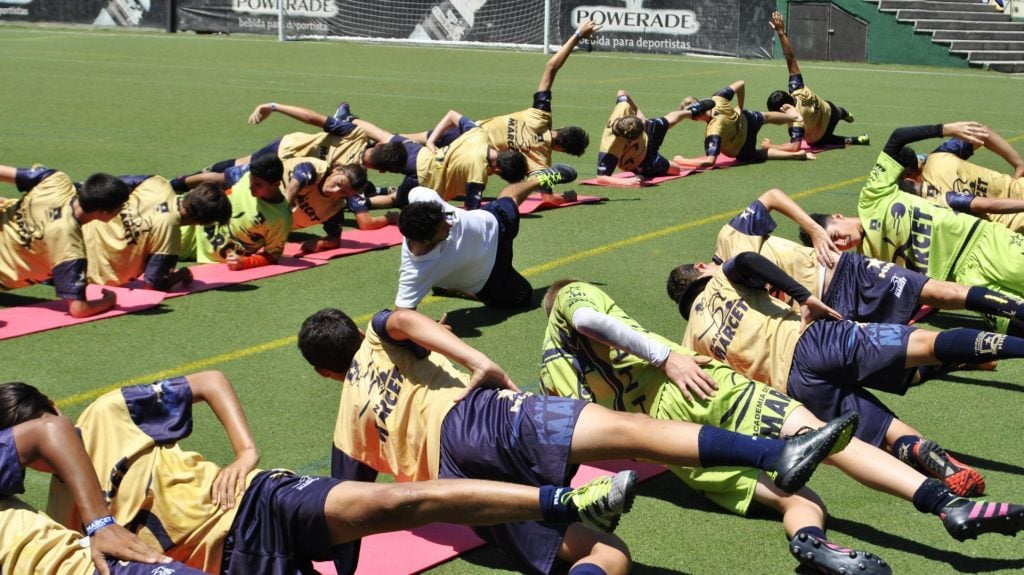
Reduce their screen time
The Center for Disease Control and Prevention (CDC) reports that children ages 8 to 10 spend an average of 6 hours per day in front of a screen, kids ages 11 to 14 spend an average of 9 hours per day in front of a screen, and youth ages 15 to 18 spend an average of 7.5 hours per day in front of a screen. Those are impressively sad statistics.
Even sadder, this excessive screen time has been linked to speech delays in young toddlers, and poor sleep, depression, and obesity in children and teenagers. There is also evidence that more screen time leads to poorer academic performance.
If you send your kid abroad, you’ll be pulling them away from screens and getting them active. At camp, your child will spend very little time with their phone or in front of televisions or computers. They’ll be busy participating in engaging activities with other camper or practicing their skills on the soccer field.
What you need to know if you send your kid abroad
Your child might need a valid passport
If you plan to send your kid abroad from one Schengen Zone European country to the next, (click here for more info. about the Schengen Zone agreement), chances are high that they’ll need a valid passport to enter the destination country.
Check out the infographic below from usa.gov to learn more about how to apply for a US passport for your child.
Your child might need a student visa
Many countries allow you to visit for up to 90 days before you need a Visa. Although your child might be attending classes and studying while at the camp, if they stay for less than 90 days, they would still be considered a tourist. Therefore, if they do need a Visa, they would need to apply for a Tourist Visa.
If you plan to send your kid abroad to a soccer academy where they would stay for longer than 90 days, they would almost certainly need a Student Visa (unless they’re traveling within the Schengen Zone).
If you’re planning to travel to the United States from outside of the U.S., you can use the U.S. Department of State’s Visa Wizard tool to see if you need a Tourist Visa.
If you’re from a non-Schengen Zone country, and you’re planning to send your child to a Schengen Zone country, you might need a Tourist Visa. Click here to see a complete list of countries whose citizens DO need visas to enter the Schengen Zone.
Your child might need unaccompanied minor travel service
An unaccompanied minor refers to a child who is traveling alone on an airplane without a parent or guardian. Some airlines require unaccompanied minors to purchase the airline’s unaccompanied minor service where a staff member accompanies the child through the airport, on the plane, during layovers (if necessary) and to the destination.
For many airlines, unaccompanied minors are passengers between 5 and 14 years old, but all airlines have their own set of rules regarding the ages and procedures for unaccompanied minors. Some airlines simply don’t offer the service and don’t allow unaccompanied minors to board the plane. If your child is below the age of 16, it’s a good idea to research your airline’s unaccompanied minor service to find out more before purchasing your ticket to send your kid abroad.
When purchasing the unaccompanied minor service, you’ll need to declare the names of both adults responsible for dropping off and picking up the child. If you’re sending your child to a summer camp abroad, you will also have to purchase a transfer service for your child so a camp monitor picks them up from the airport and takes them to the camp (read more below). You’ll need the full official name of this monitor to purchase the unaccompanied minor service, so the airline knows who to hand the child off to. Both adults must bring official identification to the airport. The unaccompanied minor service typically costs between 50 and 100£.
Visit Studylinks.com to read more general information about the unaccompanied minor travel service.
Your child might need a transfer service to arrive at the final destination
The transfer service is a service offered by the camp in which a camp monitor picks up your child from the airport and transports them to the camp. The monitor also drops your child off at the airport to catch their return flight at the end of their stay.
Monitors usually wait for the participants in the arrivals section of the airport in camp uniform so they’re easier for the children to find. They also usually hold some kind of paper or poster with the camp or academy’s name. They accept calls during the 24 hours before the child’s arrival in case of flight cancellations and/or delays.
Each summer camp abroad has specific arrival and departure schedules. It’s very important to research these schedules before booking your flights to send your kid abroad. Some summer camps receive more than 100 participants at the start of the program and may require participants to arrive at specific times. That way, they can organize the transfer services effectively, grouping the children whenever possible to avoid unnecessary trips to and from the airport.
For this reason, it’s very important to consult the arrival and departure schedules of the camp before booking your flights. Often times, if participants arrive outside of their specific arrival window, the camps can raise the price of the transfer service.
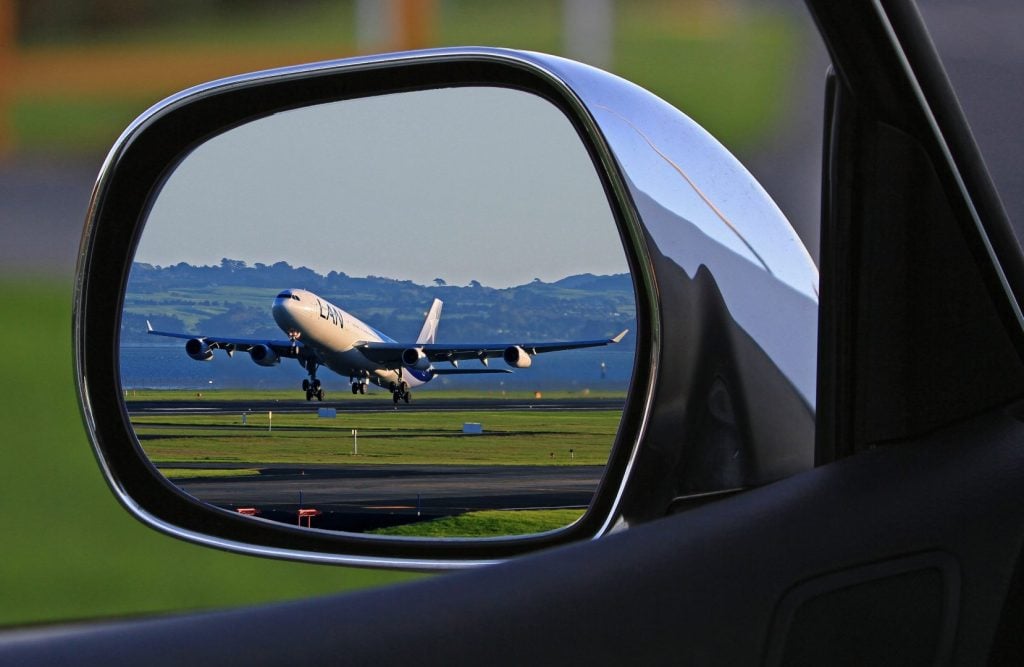
You might want to purchase travel/medical or cancellation insurance
If you don’t have private travel or medical insurance, it’s a good idea to purchase insurance before sending your child abroad in case they get sick or injured during their stay or while traveling to and from the destination.
We offer travel/medical insurance through a private insurance company called CareMed. With CareMed, you can choose the specific insurance you would like to purchase. Options include medical insurance, accident insurance, liability insurance, travel assistance, travel luggage insurance, and emergency insurance. Click here to read more about CareMed insurance.
We also offer cancelation insurance which guarantees a full refund in the event that certain unexpected circumstances prevent your child from attending the summer camp abroad. For more information about the circumstances that are covered, click here.
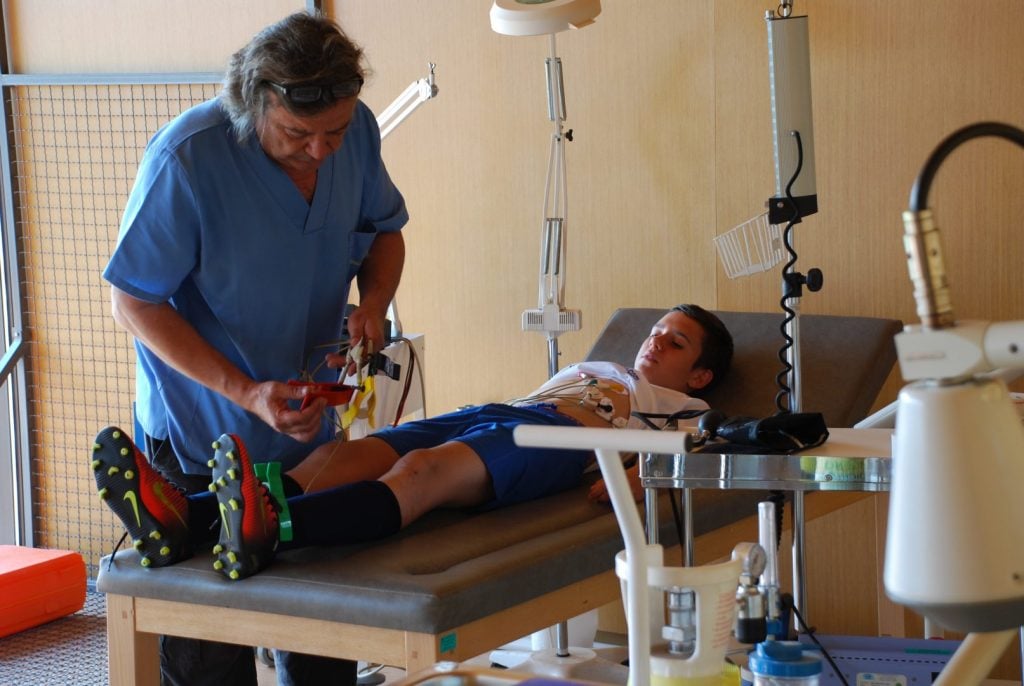
Apps to communicate with your child while abroad
You might be worried about how you’ll communicate with your child while they’re abroad. Luckily many applications allow you to message, voice call, and video call your child, and they’re completely free. All you need is a stable Wi-Fi connection. Check out these three apps below (all three allow messages, voice calls, and video calls for free):
*All are available at the iTunes app store and at the Google Play store.
And, of course, your child will have time to contact you. Many summer camps abroad set aside an hour or two during the evening hours specifically for children to communicate with their families.
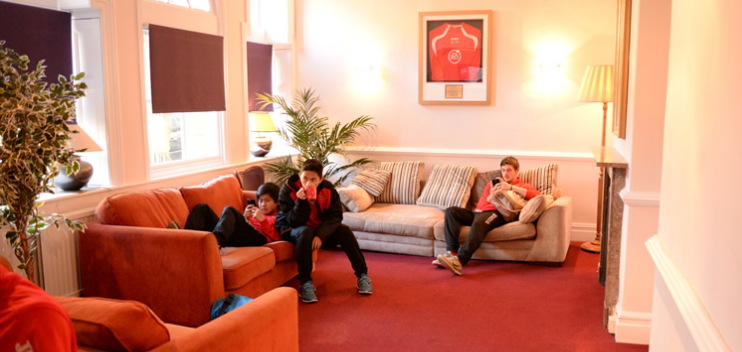
How to send money to your child while abroad
Most parents decide to send their children to summer camp abroad with a bank card for convenience. If your child has a bank card, it’s very easy to control how much money is available to them and send them more in case of emergency through apps like Circle or Venmo. Then, they can use ATM machines to take out money in the country’s currency or simply use their bank cards to make purchases.
Important: You must let your bank know that you’ll be traveling internationally. It’s also important to know that you will be charged an international transaction fee each time the bank card is used both at an ATM and for direct purchases. Your child may be asked if they’d like to pay (or take out money) in the currency of their home country or in the local currency. They should request to pay in the local currency for the best exchange rate and lowest international purchase fees.
You can also choose to send your child abroad with cash. Although, this poses two problems – It may be difficult for your child to exchange their money for the local currency while abroad, and it generally costs more to exchange your money for the destination currency while in your home country. You would also have to deal with wiring your child cash which can be a hassle.
Talk to your child about safety while on excursions
It’s normal to worry about your child’s safety while at a summer camp abroad. And, even though campers are supervised at all times, it’s never a bad idea to discuss certain safety precautions they should take when abroad and especially during excursions and field trips to nearby cities.
Expert Vagabond put together an expansive list of 25 important safety travel tips. Much of his advice doesn’t really apply to young children on group excursions. Tip #6, for example, is Ask locals for advice. The children will already have a planned itinerary with their camp monitors who should already know which areas are safe and which areas should be avoided. Nevertheless, many of his tips are just as helpful for adults traveling alone as for children traveling in larger groups.
If you don’t decide to discuss all 25 tips with your child, you should at least explain to them the dangers of pick-pockets and give them some advice to avoid being robbed. All valuable items such as phones, cameras, and especially passports should be stored in a secure place and in sight. Backpacks should be worn across the chest, zippers should be zipped, phones should NOT be in the back pocket, etc.
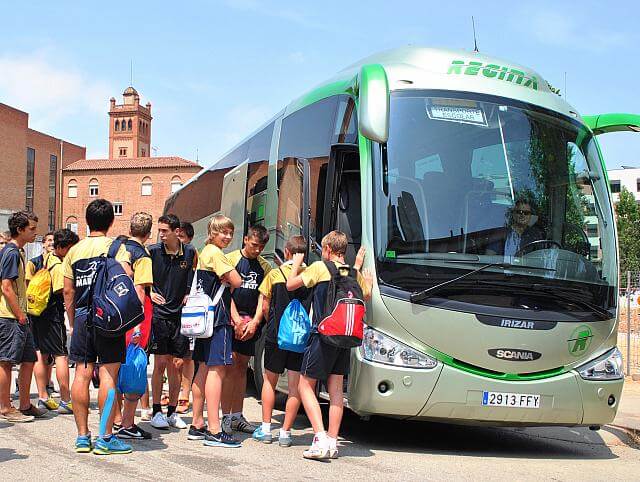
Talk to your child about adjusting to the change
You might be worried that your child will get homesick or will feel uncomfortable in the new environment away from home. Talking to your child about the feelings and anxiety they might experience during the first few days abroad is the best way to prepare them for what lies ahead.
For example, during the first few days, your child might feel lonely or misunderstood because the other children don’t speak their native language so well. You should let your child know that communication might be difficult at first because everyone will be shy to speak their second languages. But, after a couple nights of ice breaker activities, they’ll start to make friends. You can help your child adjust to the change and new environment by simply addressing some fears they might have before they even arrive at the camp.
In case you forgot! Necessary travel items
Of course, your real travel checklist will depend on where you’re sending your child, for what activity or sport, and for how long. But, here’s a basic list of things you shouldn’t forget to pack when traveling abroad.
Don’t forget:
- Travel adapters* and voltage converters**
- Phone/computer charger
- Toothbrush, toothpaste
- Medicine (if prescription, bring prescription)
- Undergarments
- Shampoo/conditioner/soap (unless provided)
- Precautionary tampons/pads for girls
- Swimsuit (if swimming pool)
Extra recommendations
- Snacks for airport travel
- Empty water bottle to fill when you pass the gates
- Backpack for city excursions
- Sentimental items (to help you feel at home)
- Comfortable shoes
- Warm pajamas
- A small lock – for lockers, or locking your backpack shut
*There are about 15 types of electrical outlets in use throughout the world. To use your electronic devices in another country, you may need to purchase a travel adapter so that your plug fits into the destination country’s outlet.
**It’s also important to recognize that there is a significant voltage difference between outlets in the U.S. and Canada and the rest of the world. In America, devices are designed for 110/120V where the rest of the world uses 220 to 240V. This means, if you plug American devices into European outlets, the devices often can’t handle the voltage and “burn out”. On the contrary, American outlets can’t generate enough voltage to power European devices. The most common example is hairdryers. American hairdryers nearly explode when plugged into European outlets. But, try blow-drying your hair with a European hairdryer in America. You might as well let it air dry.
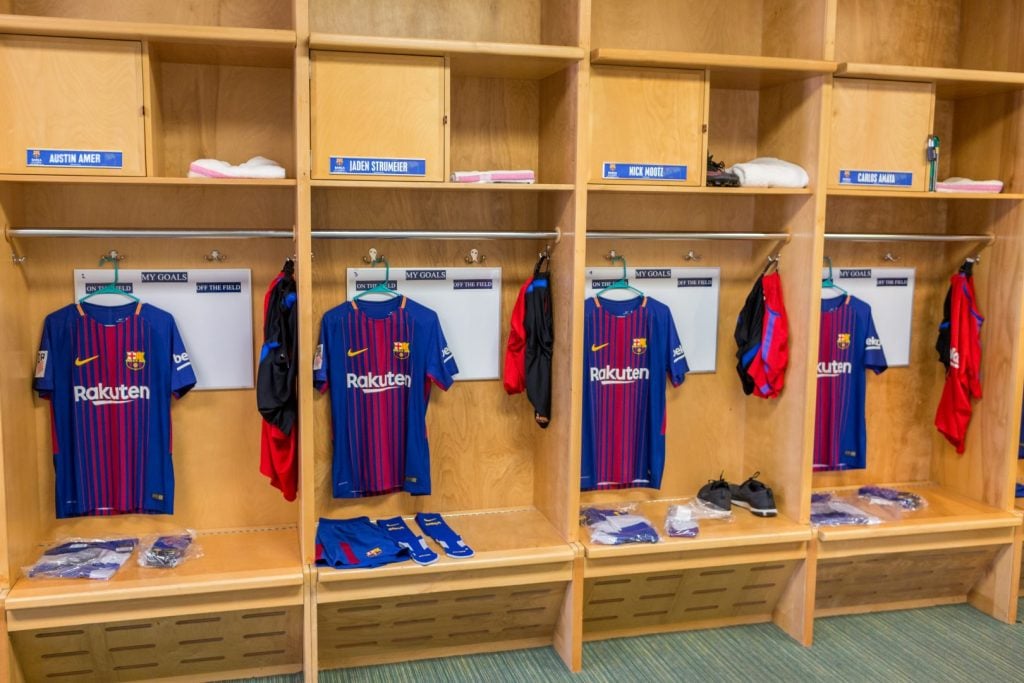
Book with an agency for a stress-free experience
Your child might be a bit anxious for their trip, but they have you to ease their anxiety and take care of them. Who’s going to take care of you? How can you be sure that you have done everything you needed to do to ensure that your child will arrive safely to the camp and with the right materials? You book with an agency.
When you book with an agency, you’ll experience:
- Friendly customer service from experienced professionals (in English, Spanish, French, German, Italian, Portuguese, or Arabic)
- Expert advice and counsel for choosing a program
- Step-by-step guidance for completing forms and paperwork
- Stress-free, easy booking and payment processing
- Packing lists and soccer academy arrival guides
- Security and protection should problems arise during your stay at the academy
You’ll avoid:
- Automated customer service
- Dealing with hard-to-reach camp directors or staff members
- Spending an exorbitant amount of money of a program that doesn’t meet your objectives
- Stressing over booking and payment information
If you’d like to send your child to a summer camp abroad, consider booking with Ertheo Sport & Education Agency. Visit our home page to explore all our summer camp options, and contact us by writing to [email protected] or giving us a call at (+1) 857 208 7249 or (+44) 203 769 94 43.

